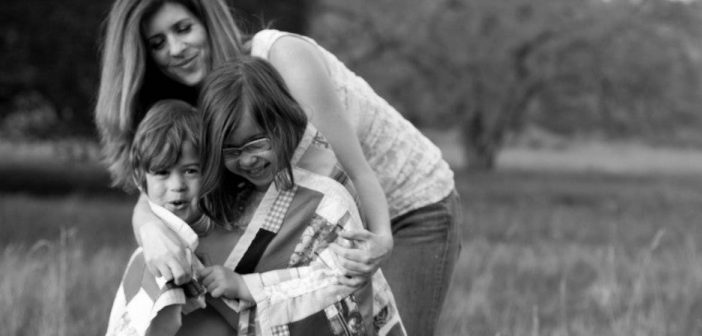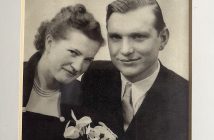To the depths of my heart and soul, I have always wanted to be a mom; it is a sacred honor, one not to embark on lightly. The minute I said, “Ok, Universe, if you’re ready, I’m ready!” I was pregnant. For the first few weeks, joy emanated through my body, synapses were firing, every neuron found its mate.
I couldn’t wait to do the ultrasound a couple of months later. During that first appointment, I broached the subject of home birth with my OBGYN. She sternly advised against it, going so far as to question how I would feel if my baby died during and because I chose a home birth. At that moment, joy was replaced with terror. I lost all confidence in myself as a mother. If I followed my intuition and trusted myself, this would lead to hurting my baby. So, I gave up. Trepidation and fear consumed me. A few months later, I was diagnosed with gestational diabetes. As was strongly suggested, I was scheduled for an induced birth. Waiting past the natural due date would be putting my baby in danger. She wasn’t even out of my womb, and I was already failing at the very tenet of motherhood to keep her safe.
As I laid in the hospital bed waiting for the Pitocin to kick start labor, I felt despondent. After 24 hours of a process that should have only taken a few hours, still no labor. I was tired of being in this holding pattern. I wanted to be done with this part, connected to machines and the beeping a constant reminder of my failure already. Worn down, I let my mind wander away from the room so vacant of excitement. I knew I had to ignore all the distractions and connect with Charlotte. I closed my eyes and imagined myself floating in the ocean, holding her in my arms. At that moment, my water broke, and the birthing process began.
The following days after giving birth are fuzzy, and I felt like I was tumbling toward motherhood, not yet sure of my footing. Trust in myself was too difficult to access. However, there was a litany of unsolicited advice that had nothing to do with a heart-to-heart connection. I cringed and gritted my teeth behind a fake smile–fake smiles became my mask.
We brought Charlotte home to her pretty pink room with a darling white crib set up with all the right bedding. This I could control. Somehow staying in touch with her became secondary to what we were supposed to do and have. There were moments I would hold her and all of the expectations fell away while our hearts beat together. Quickly they would be replaced by getting back to the Instructions™ for being a “good mom.” I got up every three hours on the dot, and fed her for an exact amount of minutes—no more, no less. I changed her diaper, wrapped her back up, and into the bassinet she went. There was nothing sweet or maternally blissful about what was happening, but there was intense anxiety. I spent hours on the web reading about all of the horrific things that could happen to her, that I would forget to do something. If I happened to sleep for more than a few hours I would wake up in terror with visions of her laying there dead, lifeless. My concern was not isolated to me; I trusted no one, not even her dad. The sun rose and set on his daughter, yet I couldn’t shake my suspicion that she was not safe with him, either.
When Charlotte was about a month old, she stopped sleeping on the schedule as per instructions. She had to sleep in her bassinet, she had to. If I let her in bed with me, I was essentially asking for her to suffocate and die. The current advice from the pediatrics was co-sleeping was dangerous, very dangerous. I found myself in bed, depleted in every way as only new mothers find themselves. Confidence eluded me. I was so excruciatingly tired and she wouldn’t go to sleep. She wouldn’t stop crying. Rage took over and I screamed at her. GODDAMN IT SHUT UP!!!!! The world stopped. My words grew enormous, pushing up against the walls, then shrinking to ricochet around the room until they slapped me conscious of how far I had slipped away. Overcome by shame, I knew this was the moment I had to choose, listen to advice and instructions, or listen to her .The room was dark but I could feel my way to her, bringing her sweaty body into bed with me, falling asleep with her close to me, both melting into the moment when calm replaced the storm. The following months were far from smooth sailing. I wasn’t drowning, more like steadily treading water while fully clothed.
Once Charlotte began walking, I felt ready to take on the responsibility of caring for another little human. The birth of my son two and half years later was beautiful. I had arranged for emotional support before, during, and after his birth, and most importantly, I felt confident as a seasoned (lightly) mother. I embraced the weepiness, made concrete boundaries that deterred visitors until a few weeks after Evan’s birth, and relaxed into the comfort of co-sleeping. Sure I had it all figured out now. Until out of nowhere, anxiety took over again. Paranoia forced me to constantly check on my daughter and her dad, worried that she was in danger. I would imagine terrible scenarios that were completely baseless. It took a while before I was able to lay those visions to a slight rest, but hot on their heels was the reality of raising a baby, and a toddler without hands on help from my extended family hours away.
By then, it had been a cumulative of four years of intermittent moments of joy, and feeling content in my ability to mother the beautiful souls I had been entrusted with. Yet even more moments of overwhelming pressure coming from every direction to be everything to everyone, I became despondent and numb. Trapped in what felt like an insane cycle of conflicting emotions, eventually a feeling of being worthless began to whisper, relentlessly beckoning me down a dark, deserted road. There came a day while I was driving my children to their school when I reached a familiar bend and thought they would be better off without me.
I didn’t tell anyone about that moment for many years. Strangely, the thought of leaving forever brought me back to my life and the desire to fight like hell for it. I scraped and crawled out of the abyss. In a blink of an eye, I was steady in my clarity, sure of my footing and fierce love for them. I had survived the eye of the tornado. I walked away from the chaos toward all of the constant demands of motherhood awaiting me. There was no time to stop and consider the madness that almost killed me.
Despite my confidence that I was meant to be a mom or how much I wanted to protect my babies, I could not keep a mental disorder from developing. My maternal instincts were overcome by a force that was hormonal and situational spurned by unreasonable expectations. There are many systemic reasons why our culture ignores this extremely important mental health crisis. Strong and “good” mothers are placed on a pedestal and we must be strong, and stay on that pedestal against all odds. We perform impossible feats—often completely isolated. If some survive this psychological torture, many can’t look back because it means opening old wounds. There is no time, no extra energy, no support. There is an overwhelming and continued expectation that we can still handle it all. We cannot. Over the last few months, I reached out to the moms I know some to see if they had also experienced depression, or any of the other perinatal disorders I had. I asked if they would be willing to share with me. Their quick responses were honest and raw. Many of their experiences echoed my own. We represent a shocking amount of mothers, 1 in 7. Unfortunately, millions of women are never properly diagnosed with a perinatal mood disorder, or anxiety. They will silently suffer. There is no,“ one size fits all” pattern to motherhood. trying to recreate it is impossible. The fabrication of a strong and “good” mother leaves us isolated, hanging by a thread ready to unravel at any moment. We need you to listen to us when we desperately tell you what is real. Stay with us as we cry frightened tears. Look and see our tired, broken spirits. Allow our hearts to break from misguided guilt, and help us pick up those pieces. Take our hands and place into them help that doesn’t require us to go into the battle alone.
Expect the unexpected that 1 in 7 mothers experience a perinatal mood disorder. You are not alone. There is help. Please explore and pass along the information and resources in English and Spanish accessible through these links.
Featured Image provided by author




